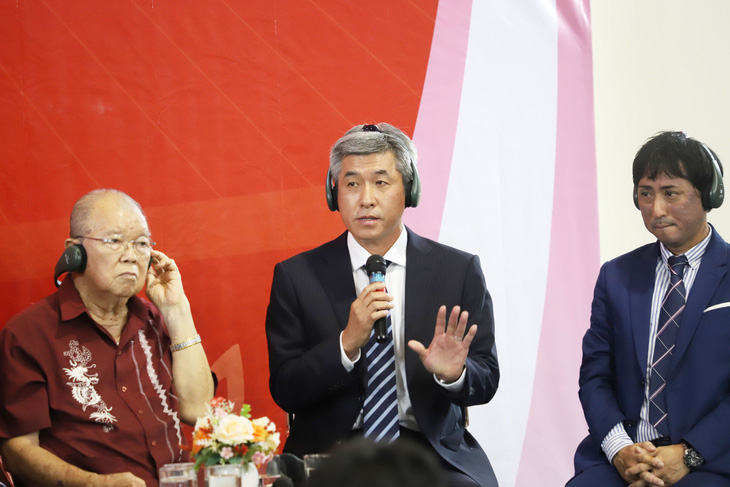Can Tho City has the potential to expand its economic ties with Japan and Japanese investors have long seen that potentiality, which is why they evince interest in investment in the capital of Vietnam’s Mekong Delta, said Shiraishi Hideyuki, representative of the Japanese Consulate General in Ho Chi Minh City.
The Japanese diplomat was speaking at a discussion conducted by the municipal administration at Can Tho University on Sunday on strengthening the friendship relations and promoting the efficiency of cooperation with Japanese partners.
Japanese enterprises have long recognized the development prospects of Can Tho and those operating in the city assessed that it has young, qualified human resources, Hideyuki said.
Can Tho has sufficient potential and strengths needed for promoting its economic relations with Japan, he emphasized.
Previously, Hideyuki said that it took up to four hours to reach Can Tho from Ho Chi Minh City, but the travel time has now been shortened to two and a half hours, thanks to recent improvements to transportation, which makes it quicker to transport goods.
Such improved transportation infrastructure will help promote trade and service relations between Japanese traders and this capital of the southern Vietnamese region, the consulate general representative commented.
Toshiyuki Ishii, general director of Hau Giang Pharmaceutical Joint Stock Company, acknowledged that the transportation infrastructure in the Mekong Delta has been much better, with less than three hours of travel between Ho Chi Minh City and Can Tho.
In order to attract more Japanese investors to the city, Can Tho should set up junior and senior high schools for children of Japanese expats who live and work in the city in the long run, the entrepreneur suggested.
Systems of roads and expressways in the delta region have been greatly improved, but a direct flight route from Can Tho to Japan has yet to be made available to facilitate Japanese investors' travel, Motoyuki Nakamura, chairman of the board of directors of Tri Viet International Co. Ltd., remarked.
If Can Tho can offer serviced apartments, this will be an advantage to attract more Japanese investors, Nakamura suggested, adding that the city should have enough Japanese restaurants to serve Japanese investors, especially those who are newcomers.
Besides its natural advantages, namely fertile land, mild climate, and rice, fruit and aquatic resources, the city has been improving its infrastructure, with the central government’s help, to boost its international trade relations, including those with Japan, Nguyen Thuc Hien, deputy chairman of the Can Tho administration, told the discussion.
In the near future, the central government will continue to invest in key transport projects such as the Can Tho - Ca Mau freeway, the Soc Trang - Can Tho - Chau Doc throughway, the express railway linking Ho Chi Minh City to Can Tho, and the project of dredging Dinh An channel for ships of over 10,000 metric tons to enter the ports of Can Tho, Hien said.
With an aim to promote multifaceted cooperation with Japan, the Can Tho government has set up an office in Japan to provide information about the projects calling for Japanese investment, and help to address obstacles facing Japanese investors and traders in the city.
In addition, the city has also set aside a land area of 30 hectares for the building of a Vietnam - Japan friendship industrial park.
City authorities have made efforts to further foster the economic cooperation between Can Tho and Japan as the outcome of the current cooperation between the two sides remains limited, Hien told the event.
Can Tho now has only six direct investors from Japan, with a total registered capital of about US$1.35 billion, Hien elaborated while calling on Japanese investors to make more investment in the city.
Like us on Facebook or follow us on Twitter to get the latest news about Vietnam!



















































